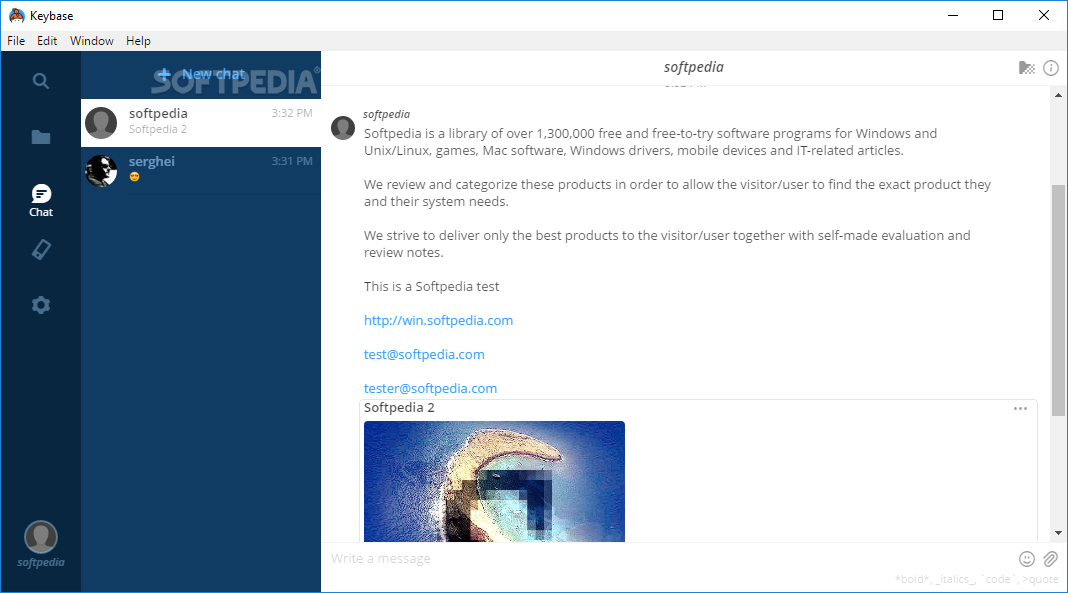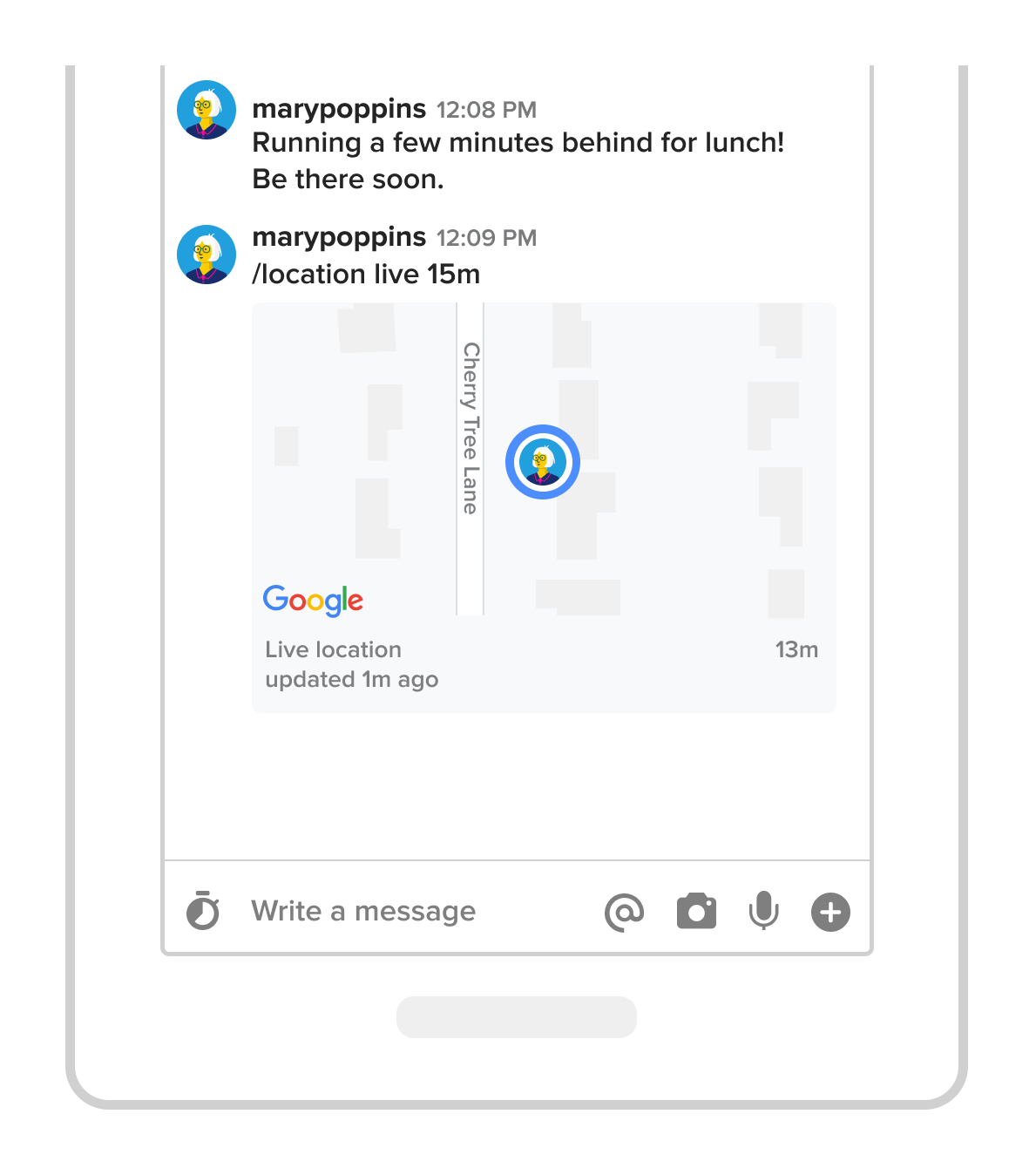
- Flaws in deleted keybase chat images install#
- Flaws in deleted keybase chat images update#
- Flaws in deleted keybase chat images password#
How was he caught? He failed to use a VPN and his IP address was traced to his house in Greater Manchester. When law enforcement came knocking at the door, it was just 6 am and the boy was still in bed. It didn’t take long to locate the attacker : a 17-year-old teenager from Manchester. Several years ago, Call of Duty was put out of action thanks to a DDOS attack.
Flaws in deleted keybase chat images install#
Several basic steps can give you an edge and make it next to impossible for you to be tracked:Ī: Disable third-party cookie tracking in your browser.ī: Disable location tracking in your browser and in all your devices.Ĭ: Install an app like Ghostery to prevent all forms of tracking - this includes social media trackers, analytics trackers, advertising trackers, and other trackers. Not Disabling Web Activity TrackersĪs was reported in an article in The Next Web a few months ago, research has shown that information gathered by web activity trackers can be used to manipulate the price of anything ranging from your Apple Music subscription to your airfares to the price of an automobile you are interested in renting, yet a whopping 90 percent of people still allow themselves to be tracked.

I: Enable two-factor authentication (preferably using Google Authenticator or Authy) for an online account that allows it.

H: Enable encryption on all your devices.
Flaws in deleted keybase chat images password#
G: Use a secure and encrypted password manager to generate and store your passwords - don’t use the same password for more than one site.
Flaws in deleted keybase chat images update#
E: Beyond just updating your antivirus software, you should also regularly update apps on your device.į: Uninstall apps and software you are no longer using if you are no longer using them, you are highly unlikely to pay attention to them and they can become outdated and eventually be exploited to access your computer. A particular study found that a whopping 48 percent of malware attacks targeting Microsoft Office were designed to exploit a bug that had been fixed four years before the study. Researchers have found that most exploits targeting apps are possible only because the apps are out of date. Ensuring your antivirus software is updated as soon as an update is available will give you an edge.ī: Enable your antivirus software anti-malware and anti-phishing functions - if your antivirus software doesn’t have one, install separate antimalware and anti-phishing software.Ĭ: Install a firewall (or enable your antivirus software firewall function).ĭ: Ensure all your applications are up to date. This makes it almost impossible for antivirus software to catch up with new malware. Research shows that a whopping 70 percent of current security threats go undetected by antivirus software, and this is due to the evolving nature of malware and viruses: 70 percent of malware only exist once and 82 percent of malware disappear after an hour.ĭue to the rapidly evolving nature of malware and online threats, there are a few additional steps you can take to complement your antivirus software:Ī: Make sure your antivirus software is regularly updated - according to some sources, four new strains of malware are discovered every second. However, it can be very dangerous to wrongly assume that using an antivirus software will be enough. The moment your computer is connected to the Internet, there are many threats it will have to deal with. Assuming an Antivirus Software Will be Enough

If you use the Internet, no matter what you do, you want to make sure you avoid the following common privacy mistakes: Mistake #1.

When news broke about Cambridge Analytica, the Internet went into a frenzy: “How could Facebook do this!” “Facebook should be made accountable!” Besides the fact that I think the whole Cambridge Analytica issue was blown out of proportion, I believe bigger issue is the fact that very few people are willing to be responsible for their own privacy: the kind of permissions we give to apps and sites like Facebook, freely allowing applications and websites to access our location information, etc, are just some of the ways we jeopardize our own privacy.


 0 kommentar(er)
0 kommentar(er)
